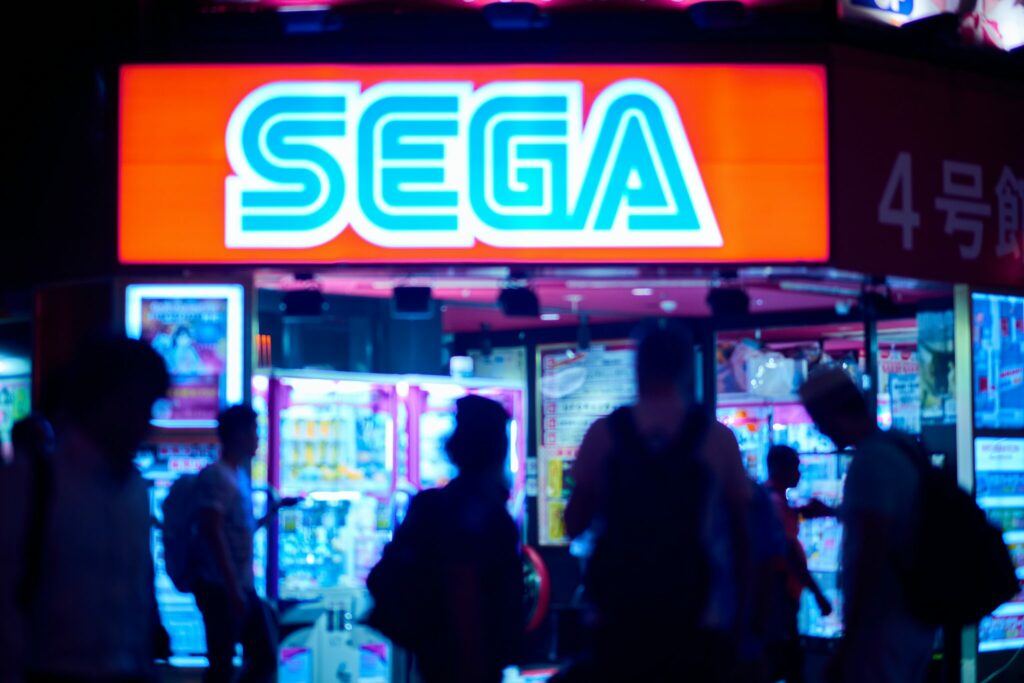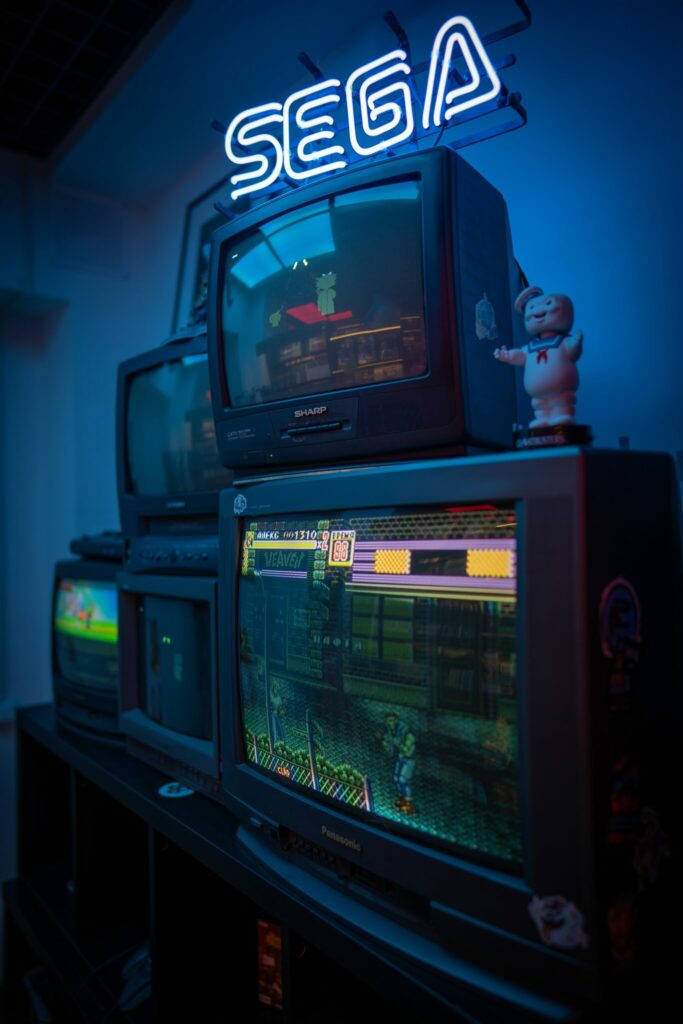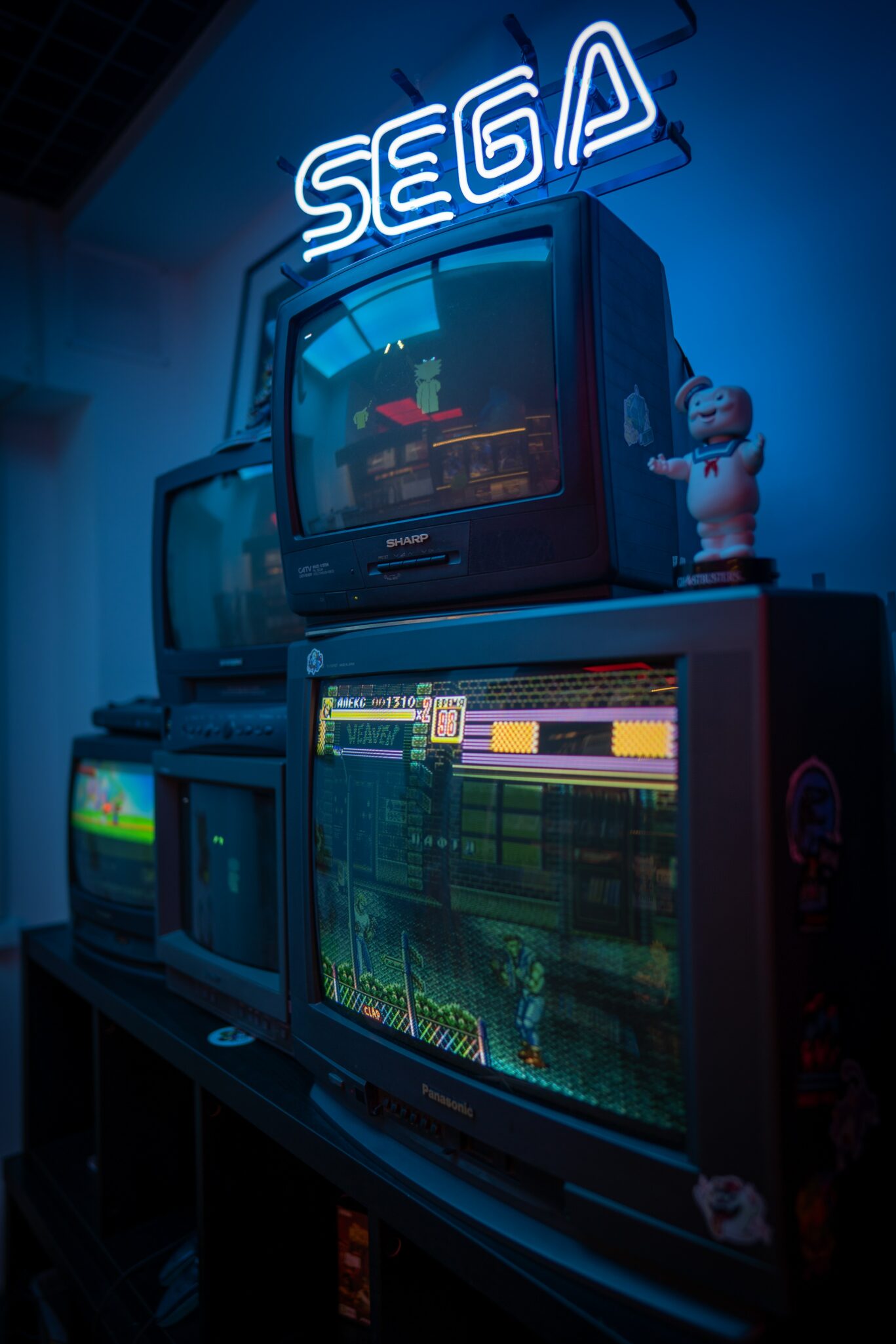In this article, we will take a closer look at the history of Sega, a well-known video game and entertainment company from Japan. You’ll learn about their origins as Standard Games and Service Games, their transition into Sega Enterprises, Ltd., and their initial focus on arcade games and slot machines. We’ll also discuss Sega’s entry into the console market, their successes with the Sega Genesis and Sonic the Hedgehog, as well as their subsequent struggles and restructuring. By the end, you’ll have a better understanding of Sega’s journey from standard games to console success.
The History of Sega: From Standard Games to Console Success
Sega, a Japanese multinational video game and entertainment company, has a rich history that dates back to the 1940s and 1950s. Its origins can be traced back to Standard Games and Service Games, two companies founded in the post-war era.

This image is property of images.unsplash.com.
Sega’s Origins in the 1940s and 1950s
Standard Games, established in 1940, focused on the distribution and operation of amusement machines in military bases. Meanwhile, Service Games, founded in 1952, provided slot machines to American servicemen stationed in Japan. These two companies were instrumental in laying the foundation for what would later become Sega.
Formation of Sega Enterprises, Ltd.
In 1965, Nihon Goraku Bussan, a Japanese company, acquired Rosen Enterprises and merged it with Standard Games and Service Games to form Sega Enterprises, Ltd. This new entity aimed to expand its presence in the burgeoning entertainment industry.
Importing Coin-Operated Games and Manufacturing Slot Machines
Initially, Sega’s primary focus was on importing coin-operated arcade games from the United States. These games, like pinball and electromechanical arcade machines, were popular among Japanese consumers. Alongside importing games, Sega also began manufacturing its own slot machines and jukeboxes.
Transition to Video Game Consoles
However, in the early 1980s, the arcade game market experienced a significant downturn. This prompted Sega to shift its focus towards developing video game consoles. In 1983, Sega released its first home console, the SG-1000, which competed with other popular consoles like the Nintendo Entertainment System.
Despite facing stiff competition, Sega’s consoles gained traction in the market. The Master System, released in 1985, solidified Sega’s position as a formidable player in the gaming industry. It offered improved graphics and sound capabilities, providing an immersive gaming experience for players.

This image is property of images.unsplash.com.
Success with Sega Genesis and Sonic the Hedgehog
Sega’s biggest breakthrough came in 1988 with the release of the Sega Genesis (known as the Mega Drive in other regions). However, it was the introduction of a certain blue hedgehog that would shape Sega’s future. In 1991, Sega released “Sonic the Hedgehog,” a game that became an instant hit and a cultural phenomenon.
With its vibrant visuals, fast-paced gameplay, and memorable characters, Sonic the Hedgehog captured the hearts of gamers worldwide. The success of Sonic propelled the Sega Genesis to outsell its main competitor, the Super Nintendo Entertainment System, and establish itself as a market leader.
Commercial Failures and Financial Decline
Despite the success of the Sega Genesis, Sega faced a series of setbacks in the late 1990s. The company failed to replicate the same success with subsequent consoles, such as the Sega 32X, Saturn, and Dreamcast. These consoles struggled to gain market share and faced strong competition from rivals like Sony’s PlayStation.
The commercial failures of these consoles had a profound impact on Sega’s financial state. The company faced declining revenues and mounting losses, which eventually led to a decision that would reshape its future.

This image is property of images.unsplash.com.
Exit from Console Hardware Market
In 2001, Sega made a pivotal decision to exit the console hardware market. The company transitioned to become a third-party developer and publisher, focusing on developing games for other console platforms. This change in strategy allowed Sega to reduce costs and focus on its core strengths in game development.
Acquisition by Sammy Corporation and Sega Sammy Holdings
In 2004, Sega was acquired by Sammy Corporation, a pachinko machine manufacturer and entertainment conglomerate. The acquisition led to the establishment of Sega Sammy Holdings, a new entity that combined the gaming expertise of Sega with the resources and capabilities of Sammy Corporation.
Restructuring and Success in Console Games
Under Sega Sammy Holdings, Sega underwent a period of restructuring to streamline its operations and refocus its efforts on console game development. The company aimed to regain its position as a leading player in the industry.
Through strategic partnerships and innovative game development, Sega experienced a resurgence in the console game market. Titles like the “Yakuza” series and “Persona” franchise gained critical acclaim and attracted a dedicated fan base. Sega’s commitment to quality and innovation led to a renewed success in console games.
Involvement in the Arcade Industry
Despite its shift towards console gaming, Sega has maintained a presence in the arcade industry. Through license agreements and game development in Japan, Sega continues to create and distribute arcade games. The company’s expertise in creating immersive arcade experiences has allowed it to thrive in this market segment.
Conclusion
In conclusion, Sega’s journey from its humble beginnings in Standard Games and Service Games to its current status as a leading game developer and publisher has been filled with both triumphs and challenges. The company has managed to adapt to changing market dynamics and successfully navigate the ever-evolving gaming industry.
Today, Sega continues to innovate and captivate gamers with its diverse portfolio of console games and presence in the arcade industry. With a rich history rooted in its passion for gaming, Sega looks forward to a future filled with exciting possibilities and continued success.

